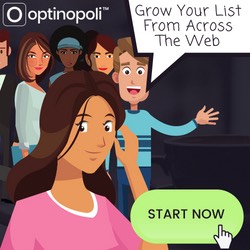Rather than a live webinar, it was recorded. No, this isn’t the issue, but it did reduce my trust to some extent. I had no prior relationship with the service provider, and for all I knew, it could have been recorded several months earlier and be completely out of date. I therefore wanted to make sure it was all still relevant and that the service was still running and offering the claimed benefits.
In other words, in the language of a very common sales objection that often underpins many other such objections, I didn’t want to feel foolish or stupid for spending money on something that wasn’t what I thought it would be.
So I did a bit of research. Fairly normal ‘potential customer’ practice, and one I’m sure you’re familiar with.
In the end, despite the fact I was a so-called ‘hot prospect’ and otherwise ready to buy, I decided not to proceed. In other words, they lost the sale.
Why? What was the vital part missing from their sales process that would have otherwise allowed me to continue down the slippery slide to the sale?
In doing my research, I wanted to find out more about the company.
I Started By Looking For Their Blog
Do you want the good news or the bad news? Let’s start with the former.
The good news was that they had one, which gave them credibility.
But unfortunately, while it was publishing consistently several months previously, it had since stopped. That largely negated any credibility it might have otherwise gained.
There could have been an innocent explanation for the sudden stoppage in blogging activity, but it immediately set off alarm bells.
I started having thoughts such as, Are these guys legitimate? Have they moved onto something else and no longer giving this attention? Is this service now a dud and the webinar I just watched out-dated?
This is another reason why running a blog, and posting consistently, are so important:
- It shows you remain active and open for business …
- It provides all the content you need to feed a ton of other activities that grow your traffic, build relationships and attract new prospects …
- It provides trust and reassurance to potential customers, including hot prospects ready to purchase. By reading your content, including your most recent posts. they can get to know you a little first. People buy from people. (For more info, see how to monetize a blog, the right way).
So, all in all, I was left feeling a little unsure after visiting their blog. What exactly was happening with this company I had been almost ready to buy from?
Next Stop – Social Media …
I found their Twitter account, and again they were publishing content – i.e. tweeting – fairly consistently a few months previously. But this had also stopped. Again, no sign of activity.
It was a bit like seeing products in a shop window and a polite notice on the door, Sorry, currently closed due to unforeseen circumstances.
This only served to confirm my earlier misgivings.
By now, I’ll be honest, the sale was probably lost.
Even more, I was beginning to feel a little misled by the recorded webinar I watched. Would they actually deliver any value?
One more stop …
I decided to check Facebook as well. A slight – very slight – improvement. There was the odd sporadic post, with the last post from over a month ago. So perhaps some sign of life.
Perhaps it wasn’t as bad as it appeared, maybe there was some sort of explanation.
But it was clear I would have to do a lot more due diligence before parting with any cash. They’d certainly lost that initial sale when I was ‘hot’ and ready to buy.
I’m sure you get the picture. Their online presence was a bit like a ‘ghost town’ and did not make me feel comfortable doing business with them. In fact, I lost all the trust in them that I’d gained during the webinar.
I wonder how many other such sales they had lost? Or how radically their sales conversion rates could be improved with some simple but consistent content creation activities?
Had they been blogging consistently, tweeting, using Facebook, and so on, and everything seemed alive and active, I would have purchased. There and then. I won’t be the only one.
My guess is they didn’t understand the vital part such activities had on their sales process, regardless of where the prospect arrived from (for example, I found them through search).
The message?
Social Media and Content Marketing Builds Vital Trust
Your activities on social media and content marketing is not all about driving traffic, leads and sales directly. It’s also about supporting the whole sales environment that encourages and nurtures prospects through to the sale by building that crucial trust and credibility in the business.
It’s a vital part of the sales process, however your prospect reaches you in the first place. Too many marketers are focused on exactly where the prospect came from – which advert/promotion/link/campaign etc. – and they miss the bigger picture.
It’s not all about what shows in your stats. You might not be able to directly attribute specific sales to your Tweets, Facebook posts, and blogging activities. That doesn’t make such activities less important (though there’s no reason why they can’t drive sales directly on occasion).
The wealth of data that doing business online supplies us with can blind us to all the other factors that combine to create the sale.
You might have a website, but it’s not enough any more. The online marketing environment has changed significantly in the past two or three years alone. As social media has become increasingly prolific, and relevant for business, we’re all looking for far more social proof before committing.
The fact is, if you’re nowhere to be seen in terms of online content activity, customers will simply go elsewhere to businesses that do take the time to build that trust and build an active online presence.
Lack of trust is a potent conversion killer … pretend you want to find [a service] for your business. You’re down to your final two picks and you decide to do a little more research. They are both neck and neck, but one has an active, engaging presence on Twitter, Facebook and YouTube. The other has none. Which are you more likely to choose?
invesp.com
Interestingly, I later got in contact with the company concerned to find out what their status actually was. I wanted to know – did the impression they perhaps unwittingly gave online reflect their real status? Were they still active and alive? Was the recorded webinar still honest and true?
They got back to me relatively quickly (good sign) with the following response, which I’ve paraphrased a little:
Thanks for the great feedback and observations! It’s important for us to know how we are viewed from the “outside.”
We are actually just getting going with social media. The blog and Twitter accounts were set up primarily to promote our new podcast, which launches this month. We just needed to populate the blog with some content and get some Twitter followers to start. But beyond that, are not currently using them. We also just started running Facebook ads, and are getting likes on our FB page, even though we don’t really post there too often.
They then proceeded to reassure me regarding their service – so I may still purchase, some day.
Their social media ‘strategy’ might seem perfectly sensible from the inside, but largely ignores the impression it gives potential prospects. It damages rather than benefits their business.
It wouldn’t take a huge amount of effort to turn it around by continuing with the blog, using it to feed social media, and providing a regular source of content too for their podcast, all with a host of ongoing benefits (see the free Be Everywhere blueprint for full info on this type of strategy and how to implement it). Not least, an increase in their sales conversion rate.



 Tweet This
Tweet This
